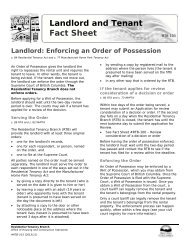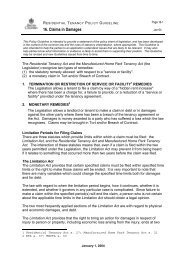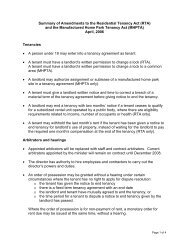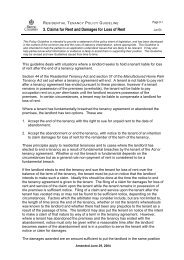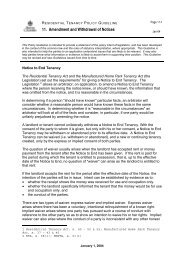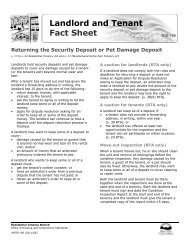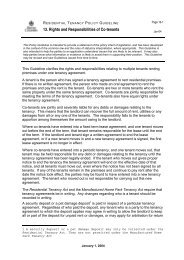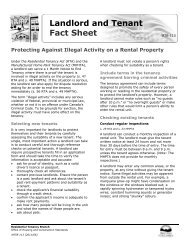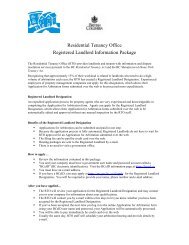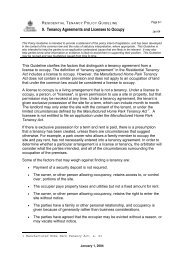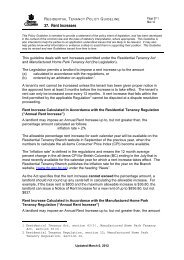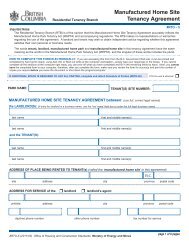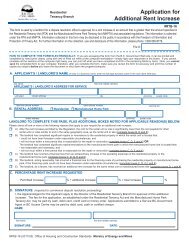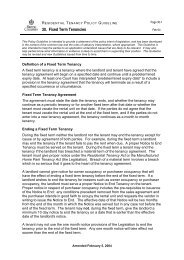Agents - Residential Tenancy Office
Agents - Residential Tenancy Office
Agents - Residential Tenancy Office
Create successful ePaper yourself
Turn your PDF publications into a flip-book with our unique Google optimized e-Paper software.
RESIDENTIAL TENANCY POLICY GUIDELINE<br />
Page 26-2<br />
26. Advocates, <strong>Agents</strong> and Assistants<br />
September 27, 2013<br />
• Guiding the party through his or her evidence. This may be done through asking<br />
questions of the party and assisting the party to present his or her oral evidence<br />
and explain his or her documentary evidence.<br />
• Asking questions of the party’s witnesses for the purpose of presenting evidence.<br />
• Asking questions of the other party and their witnesses with respect to their<br />
evidence.<br />
At times an advocate may attend a hearing in place of a party. The advocate may be<br />
required to provide written verification that they have authority to do so. Written<br />
verification is not required where an advocate is attending with a party.<br />
<strong>Agents</strong><br />
An agent acts on behalf of a landlord or tenant, speaks on behalf of, and often appears<br />
on behalf of the party. An agent may also be a person who has acted for a party during<br />
the course of a tenancy, such as a property manager who acts on behalf of a landlord,<br />
and as such may have evidence to present at the hearing. A tenant may appoint any<br />
trusted person as their agent. Where a party chooses to attend the hearing, they are<br />
entitled to remain with their agent throughout.<br />
Unlike advocates, agents have full authority to settle the claims and may be named as a<br />
party to the dispute.<br />
An agent may:<br />
• Apply for dispute resolution on behalf of the landlord or tenant 3<br />
• Prepare, organize, serve and submit evidence<br />
• Make submissions on behalf of the party<br />
• Ask questions of the other party and witnesses with respect to their evidence<br />
• Settle claims<br />
<strong>Agents</strong> may be required to provide written verification that they have been appointed by<br />
the landlord or tenant to act or appear on their behalf at the dispute resolution<br />
proceeding and that they have full authority to settle a claim. This is particularly<br />
important when the agent has not had direct involvement during the tenancy. Written<br />
verification is not required where a party attends the hearing with his or her agent.<br />
3 When an agent applies for dispute resolution on behalf of a landlord or<br />
tenant, such as a property manager applying for an Order of Possession<br />
through the Direct Request process, the agent should attach a letter to the<br />
application explaining their role and authority to act.<br />
September 27 2013



